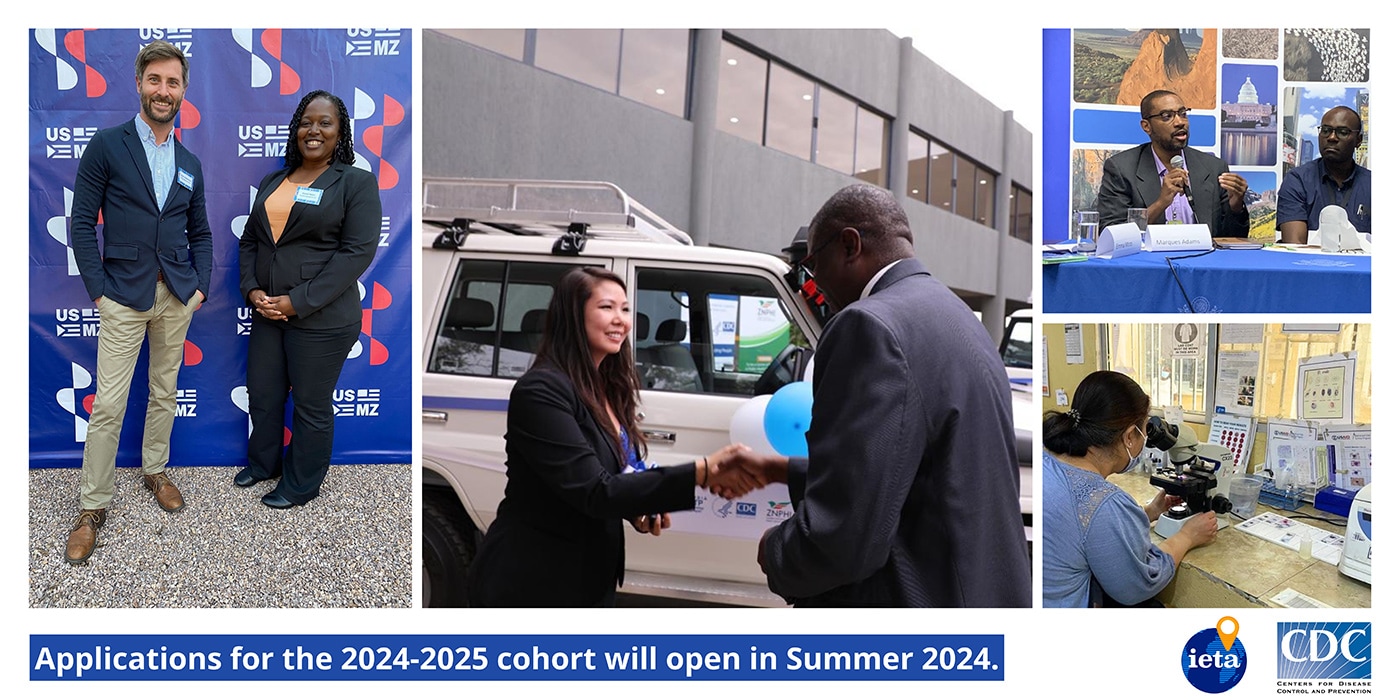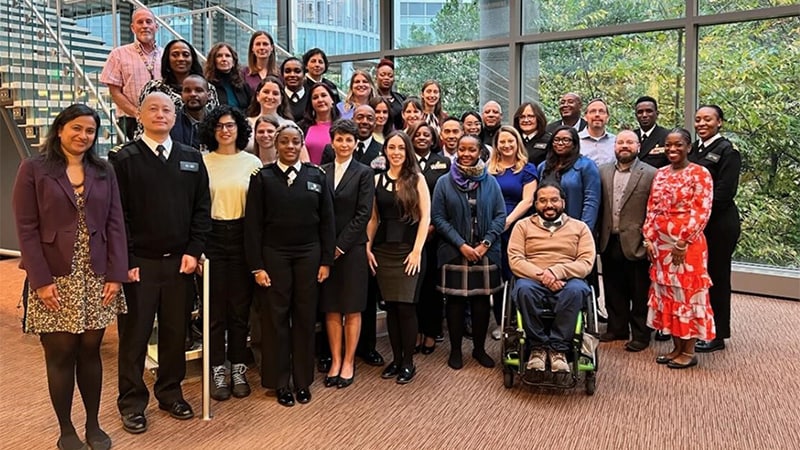What to know
IETA competencies provide a framework for the international field assignments, and practical program activities. These competencies describe capabilities each IETA participant should be able to demonstrate that they have enhanced following program completion.
Overview
IETA competencies provide a framework for the international field assignments and practical program activities. These competencies also describe capabilities each participant should be able to demonstrate following program completion.
Competencies are core to IETA's applicant screening, program planning, and evaluation processes. Competencies will continue to evolve to meet CDC's expanding mission.
The IETA competencies are divided into four domains (skillsets) and reflect input from the program's key stakeholders. They include IETA alumni and supervisors of IETA participants. They were informed by a combination of the12345678:
- CDC leadership competencies
- Council on Linkages Between Academia and Public Health Practice
- Peer-reviewed literature

Domain 1: Leadership
Develops and maintains effective working relationships by practicing self-awareness, emotional intelligence, flexibility, and resiliency; being growth-minded; and demonstrating respect for alternative approaches and perspectives.
1.1 Self-awareness and continuous development
Actively and consistently cultivates professional development.
1.2 Emotional intelligence
Is aware of, controls, and expresses one's emotions effectively, and handles interpersonal relationships judiciously and empathetically.
1.3 Resilience
Deals effectively with pressure and can perform effectively, even under adverse conditions.
1.4 Mental models
Challenges one's own mental model, accepts one's own role in problems and is open and flexible to different ways of seeing and doing.
Domain 2: Cross-Cultural Humility
Actively use cultural humility to build understanding of individual perspectives, experiences, and identities. Demonstrates the ability to live, work, and interact with people across a wide variety of cultural and social backgrounds.
2.1 Embracing cross-cultures
Interacts sensitively and professionally with people from all backgrounds.
2.2 Cultural feedback
Maintains an awareness of one's own behavior and considers the perspectives of others to resolve or avoid cultural issues or misinterpretations.
2.3 Cultural insight
Recognizes and actively considers other worldviews or perspectives in work products, interpersonal communications, and any other interactions with colleagues and external collaborators including arranging for interpreters to be present when necessary.
Domain 3: Diplomacy
Makes oneself familiar with the U.S. mission environment, maintains situational awareness (including sensitive cultural, political, and policy nuances), and uses tact and diplomacy in establishing and building work relationships.
3.1 Political savvy and situational awareness
Maintains awareness of international current events and understands the sensitive nature of cultural (e.g., regional, national, organizational), political, and policy nuances and their impact on the design and implementation of public health programs.
3.2 U.S. mission environment
Recognizes the role of the U.S. Department of State overseas; understands the structure and operations of U.S. embassies and overseas programs; and is familiar with the processes for in-country travel, voucher submission, and reimbursement.
3.3 Interpersonal relationship building
Exercises tact, flexibility, courtesy, diplomacy, and resourcefulness in establishing and continuing work relationships with co-workers and external parties.
Domain 4: Technical Expertise
Within the complex country context, uses project management, communication, and problem-solving skills to foster optimal levels of work performance.
4.1 Project management
Seeks information, continuously monitors changes, identifies opportunities, shares information, and searches for new or innovative ways to solve problems and appropriately manage projects within the country context.
4.2 Communication skills
Prepares written and oral reports and presentations that communicate necessary information to professional audiences, policy makers, and/or the general public.
4.3 Complex problem-solving and decision-making
Understands the complexities associated with solving problems and making decisions in an often ambiguous global, multicultural context.
- HHS Competency Framework. U.S. Department of Health and Human Services, https://humancapital.learning.hhs.gov/competency/framework.asp Accessed 8 May 2021.
- U.S. Department of Health and Human Services, Centers for Disease Control and Prevention, Human Resources Office. "CDC Leadership Competencies." CDC.gov Intranet. Accessed 6 May 2021.
- U.S. Department of Health and Human Services, Centers for Disease Control and Prevention, Workforce Task Force. "Essential Skills." CDC.gov Intranet. Accessed 6 May 2021.
- U.S. Department of Health and Human Services, Centers for Disease Control and Prevention, Center for Surveillance, Epidemiology, and Laboratory Services. “Future Leaders in Infections and Global Health Threats (FLIGHT) program competencies." CDC.gov Intranet. Accessed 18 May 2021.
- U.S. Department of Health and Human Services, Centers for Disease Control and Prevention, Human Resources Office. "CDC Leadership Competencies." CDC.gov Intranet. Accessed 6 May 2021.
- Core Competencies for Public Health Professions. Public Health Foundation, 28 June 2014. Revised and adopted by the Council on Linkages Between Academia and Public Health Practice.
- "Expert Panel on Cultural Competence Education for Students in Medicine and Public Health." Cultural Competence Education for Students in Medicine and Public Health. Report of an Expert Panel, Washington, D.C. July 2012. Association of American Medical Colleges and Association of Schools of Public Health.
- Cherniak, William, et al. "Visiting Trainees in Global Settings: Host and Partner Perspectives on Desirable Competencies." Ann Glob Health, vol. 83 no. 2, Mar-Apr 2017, pp359-368, doi: 10.1016/j.aogh.2017.04.007.


